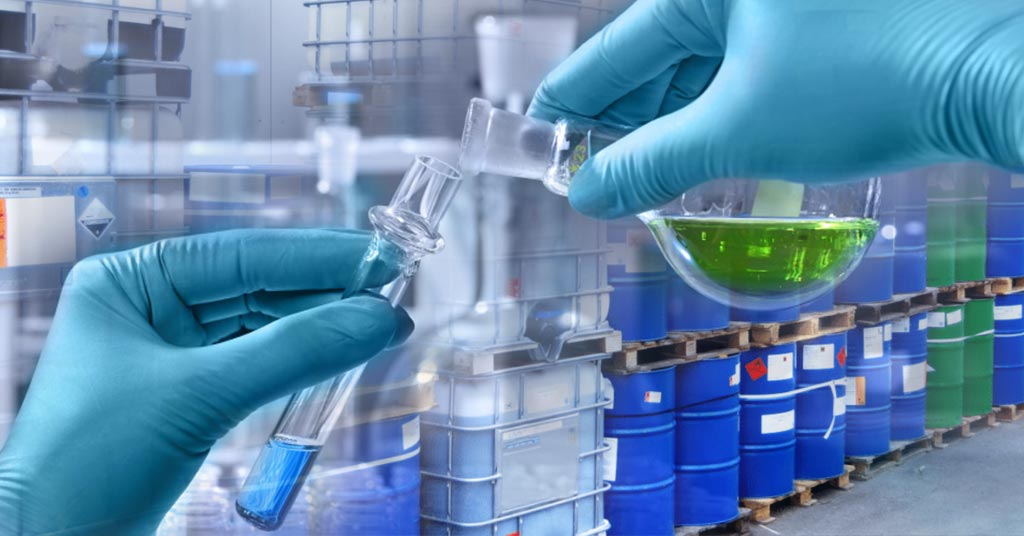Welcome To ChemAnalyst

OSLO, Norway [Europe]: DNV is launching the second phase of H2Pipe, a joint industry project aiming to develop a code which would enable the design, re-qualification, construction and operation of offshore pipelines used for transporting Hydrogen (both pure and blended with Natural Gas). This technology will help support a low-Carbon future.
By 2050, it is anticipated that over 50% of global Hydrogen pipelines (and as much as 80% in some regions) will be repurposed from existing natural gas pipeline networks. This is due to the low cost of such conversions which are expected to be less than 35% of the cost of new builds.
"A large-scale deployment of Hydrogen transport through pipelines requires the best possible balance between safety and cost-effectiveness. It is essential to develop more accurate, reliable, and possibly less conservative code requirements for the optimal design of newbuilt pipelines and the assessment of the requalification of existing infrastructure, as well as a better understanding of the real design limitations, " DNV stated.
Industry players are examining methods of transporting Hydrogen to use as an additive or a substitute for natural gas, according to DNV but "currently, offshore pipeline codes insufficiently cover the transport of Hydrogen or Hydrogen blends by offshore pipelines."
The DNV standard for subsea pipeline systems (DNV-ST-F101) includes Hydrogen as a transport product, however safety levels must be increased to account for the potential detrimental influence of Hydrogen on resistance to cracking in Carbon Steels. Additional considerations are required to make sure these safety levels can be met.
It is essential to update the standards in order to successfully transition to Hydrogen as an energy carrier. Doing so would ensure that systems, designs and materials all meet the necessary requirements for pipeline integrity and safety, according to DNV.
DNV has launched the first phase of H2Pipe in 2021 to address challenges related to Steel pipe mechanical properties. In this initial test program, gaps in existing knowledge are filled and various test parameters are explored to prepare for Phase 2's main test program. The aim is to narrow down the number of variables and achieve better results.
The first draft of the guidelines was provided to participants in the same year. Further development of the document is necessary to provide more detailed acceptance criteria.
Prajeev Rasiah, Regional Director, Northern Europe, Energy Systems, DNV stated: “DNV is committed to the energy transition and plays an active role in supporting its customers removing risks around the implementation of clean energy solutions like Hydrogen. We invest in initiatives such as the FutureGrid Project at our Spadeadam Test Facility in the UK, for the purpose of understanding how a gas transmission network will need to be developed and operated, to deliver enough Hydrogen safely. This JIP for offshore pipelines is another contribution in the move to decarbonize the energy system, and to ensure an efficient and safe Hydrogen infrastructure."
DNV has announced that Phase 2 of H2Pipe will begin in late March 2023, and is open to additional partners. This two-year program will involve a comprehensive testing scheme to better understand how Hydrogen affects the material properties and integrity of line pipe.
In addition to the experimental test campaign, Phase 2 of our project will involve a feasibility level design for offshore Hydrogen pipelines, as well as a risk assessment study to evaluate the safety aspects of such pipelines.
The second phase of the Joint Industry Project (JIP) is expected to culminate in a comprehensive set of guidelines providing specialized advice on the design and adaptation of offshore pipelines for Hydrogen transportation.
“The results from this JIP will allow us and our partners to further develop the guideline to a level where it can offer direct and detailed support in the design and re-qualification of offshore Hydrogen pipelines. With real design limitations, industry players will be able to design – or repurpose – pipeline systems fit for the safe transportation of Hydrogen, and to implement adequate mitigation measures, if necessary,” stated, Jan Fredrik Helgaker, Senior Engineer and JIP Lead, Energy Systems at DNV.
Hydrogen is proving to be an invaluable tool for energy storage, especially when it comes to balancing the variability of power generation from renewable sources such as wind and solar. Compared to electricity, it’s less efficient as a carrier of energy, but its chemical energy storage capabilities are proving useful in this regard.
"Energy storage is required to manage demand and supply dynamics to prevent grid stress and is essential in reducing dependence on fossil fuels. Hydrogen is desperately needed as a low-carbon energy carrier in hard-to-abate sectors (difficult or impossible to electrify), like aviation, shipping, and high-heat industrial processes. In some countries, like the UK, Hydrogen can also be delivered to end users by the existing gas distribution networks at a lower cost than a wholesale switch to electricity. Hence, low-Carbon Hydrogen is expected to play a significant role in decarbonizing many industries to mitigate climate change," DNV stated.
DNV's recent 2022 Hydrogen Forecast to 2050 predicts that in order to meet the goals of the Paris Agreement, Hydrogen will have to account for 15% of the world's energy demand by mid-century. This means that over the next 30 years, 6.8 trillion dollars will be spent on Hydrogen production and an additional 180 billion dollars, and 530 billion dollars will be invested in pipelines and ammonia terminals respectively.
We use cookies to deliver the best possible experience on our website. To learn more, visit our Privacy Policy. By continuing to use this site or by closing this box, you consent to our use of cookies. More info.
